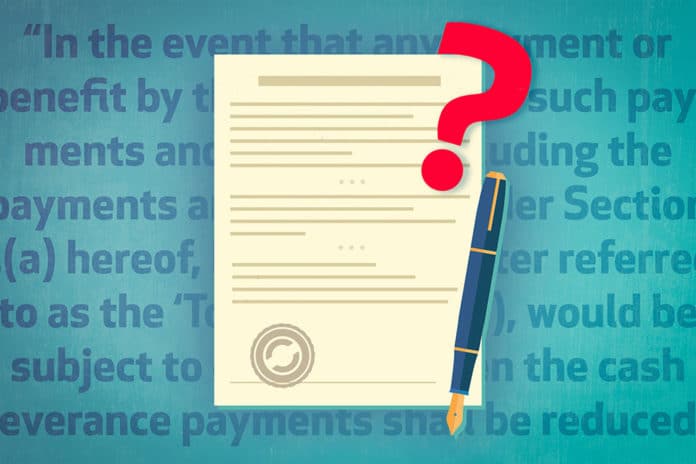Contracts are read by virtually everyone yet understood by seemingly no one except lawyers. Despite their ever-increasing presence in everyday life, contracts remain notoriously inaccessible to nonlawyers.
For the benefit of society at large, it is mandatory to simplify public legal documents.
A new study from MIT cognitive scientists has determined why these documents are often so impenetrable. First, they compared a large selection of legal contracts (totaling about 3.5 million words) to other types of texts. They then used a text analysis tool to identify patterns n large volumes of text.
Scientists found several features that lawyers commonly use in legal documents. They found that legal documents include many instances of nonstandard capitalization, such as using all caps.
Some legal documents require this nonstandard capitalization to make specific provisions more conspicuous. Legal writing also features much more use of the passive voice.
While writing legal documents, lawyers have a habit of frequently inserting extended definitions in the middle of sentences. This type of structure is known as Center-embedding.
Scientists tested people’s ability to understand and recall the meaning of a legal text. Replacing center-embedded structures with more straightforward sentences, people’s performance was found to be improved.
Edward Gibson, an MIT professor of brain and cognitive sciences and the senior author of the new paper, said, “Using center-embedded clauses is standard writing practice in legal documents, and it makes the text very difficult to understand. It’s memory intensive for anyone, including lawyers. This is something you could change and not affect the meaning in any way, but improve the transmission of the meaning.”
Using uncommon words such as “lessee” and “lessor” in legal documents. Replacing these words with common alternatives such as “tenant” and “landlord” improved readers’ ability to understand and recall the meaning of what they had read.
Eric Martinez, a recent law school graduate and licensed attorney who is now a graduate student in brain and cognitive sciences at MIT, said, “We found more words that could have been simplified in legal text than in any other genre that we looked at, including academic text.”
“This is especially important for those who are not able to afford legal counsel to help them understand the law. If you can’t afford to hire an attorney, then being able to read the documents on your own will better equip you to understand your rights.”
Journal Reference:
- Eric Martínez et al. Poor writing, not specialized concepts, drives processing difficulty in legal language. DOI: 10.1016/j.cognition.2022.105070
